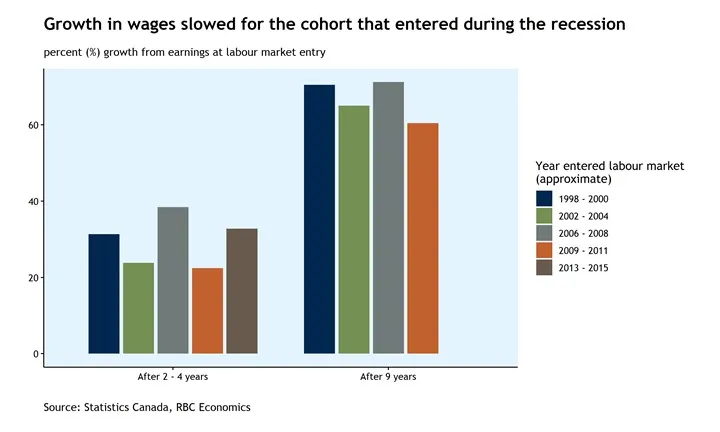
Report on Forced Labour Allegations in Electronics Supply Chains and Implications for Sustainable Development Goals (SDGs)
Introduction
Recent investigations have revealed that at least three factories implicated in forced labour practices are owned by Kingboard Holdings, a multibillion-dollar company recognized as one of the world’s largest producers of printed circuit boards and related raw materials. This report examines the involvement of major technology companies, investor responses, and the broader implications for the Sustainable Development Goals (SDGs), particularly those related to decent work, economic growth, and responsible consumption.
Key Findings
- Supplier Involvement and Corporate Responses
- Lenovo confirmed that some suppliers identified by The Bureau of Investigative Journalism (TBIJ) ship products to the company but stated that independent audits have not detected forced labour.
- Logitech is investigating the allegations and has committed to re-evaluating any vendor relationships found to be in breach of ethical standards.
- Kingboard Holdings’ subsidiaries and G. Tech have not responded to requests for comment.
- Investor Exposure and Actions
- Most investors are indirectly exposed through holdings in brands purchasing parts from factories involved in government labour transfer programs.
- Rebecca DeWinter-Schmitt, Associate Director at the Investor Alliance for Human Rights, emphasized that investors are actively assessing forced labour risks both within and outside Xinjiang.
- In 2024, Volkswagen divested from a Xinjiang-based facility following investor pressure, highlighting the growing role of investors in enforcing ethical supply chains.
- Labour transfers to eastern regions remain difficult to detect, posing ongoing challenges.
- Calls for Investor Leverage
- DeWinter-Schmitt urged investors to leverage their influence to demand that Chinese suppliers cease participation in labour transfer schemes immediately.
- She stated that failure by companies to act promptly should lead investors to consider divestment.
- Case Study: Wuhan Honghai Technology
- Wuhan Honghai Technology, a supplier to Haier, Midea, and TPV (maker of AOC, Envision, and Philips monitors), went public on the Beijing Stock Exchange in February.
- Prior to the IPO, a Xinjiang worker at the factory uploaded a video showing the onsite dormitory and surrounding community, highlighting the presence of transferred workers.
- TPV declared its firm opposition to all forms of forced labour and modern slavery and reported conducting regular supplier assessments.
- Wuhan Honghai Technology did not respond to requests for comment.
- Following the company’s public listing, a security guard confirmed the presence of workers from Xinjiang but showed indifference to inquiries.
Implications for Sustainable Development Goals (SDGs)
The issues highlighted in this report have direct relevance to several SDGs:
- SDG 8: Decent Work and Economic Growth – The use of forced labour violates the principles of decent work and fair employment practices. Ensuring ethical labour standards in supply chains is essential for promoting sustained, inclusive economic growth.
- SDG 12: Responsible Consumption and Production – Companies and investors must adopt responsible sourcing policies to eliminate forced labour from production processes, fostering sustainable consumption patterns.
- SDG 16: Peace, Justice, and Strong Institutions – Transparency, accountability, and enforcement of labour laws are critical to combatting forced labour and supporting strong institutions.
- SDG 17: Partnerships for the Goals – Collaboration among corporations, investors, governments, and civil society is necessary to address complex supply chain challenges and uphold human rights.
Recommendations
- Investors should intensify due diligence efforts to identify and mitigate forced labour risks within supply chains.
- Companies must conduct independent audits and enforce strict supplier compliance with labour standards.
- Stakeholders should promote transparency and demand accountability from suppliers and manufacturers involved in labour transfer programs.
- Divestment should be considered as a last resort if companies fail to take prompt corrective action.
- International cooperation and multi-stakeholder partnerships should be strengthened to support ethical supply chains and advance the SDGs.
1. Sustainable Development Goals (SDGs) Addressed or Connected
- SDG 8: Decent Work and Economic Growth
- The article discusses forced labor and labor transfer schemes, which directly relate to promoting decent work conditions and ending forced labor.
- SDG 12: Responsible Consumption and Production
- Issues around supply chain transparency and ethical sourcing by companies like Lenovo, Logitech, and others are connected to sustainable consumption and production patterns.
- SDG 16: Peace, Justice and Strong Institutions
- The involvement of government transfer programs and the need for accountability and transparency relate to promoting justice and strong institutions.
2. Specific Targets Under Those SDGs Identified
- SDG 8 Targets
- Target 8.7: Take immediate and effective measures to eradicate forced labor, end modern slavery and human trafficking.
- Target 8.8: Protect labor rights and promote safe and secure working environments for all workers.
- SDG 12 Targets
- Target 12.6: Encourage companies to adopt sustainable practices and integrate sustainability information into their reporting cycle.
- SDG 16 Targets
- Target 16.6: Develop effective, accountable and transparent institutions at all levels.
- Target 16.7: Ensure responsive, inclusive, participatory and representative decision-making.
3. Indicators Mentioned or Implied to Measure Progress
- Indicators for SDG 8
- Proportion and number of children and adults engaged in forced labor or modern slavery (implied through references to forced labor investigations and audits).
- Number of companies implementing independent audits and assessments to detect forced labor (implied by Lenovo and TPV’s audit practices).
- Indicators for SDG 12
- Number of companies adopting sustainable supply chain practices and reporting on sustainability (implied by investor demands and company statements).
- Indicators for SDG 16
- Existence and effectiveness of mechanisms for accountability and transparency in supply chains (implied by calls for investor leverage and company accountability).
4. Table of SDGs, Targets, and Indicators
| SDGs | Targets | Indicators |
|---|---|---|
| SDG 8: Decent Work and Economic Growth |
|
|
| SDG 12: Responsible Consumption and Production |
|
|
| SDG 16: Peace, Justice and Strong Institutions |
|
|
Source: thebureauinvestigates.com







